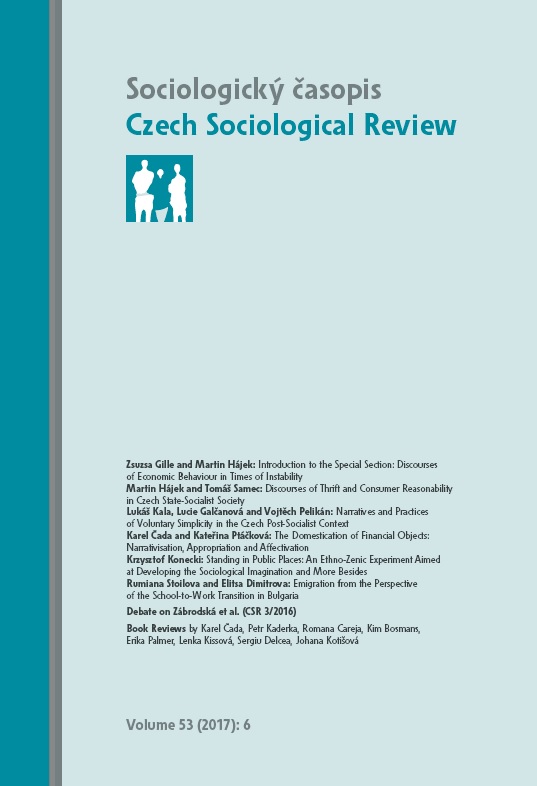Emigration from the Perspective of the School-to-Work Transition in Bulgaria
Emigration from the Perspective of the School-to-Work Transition in Bulgaria
Author(s): Rumiana Stoilova, Elitsa DimitrovaSubject(s): Social differentiation, Migration Studies
Published by: AV ČR - Akademie věd České republiky - Sociologický ústav
Keywords: emigration intentions; emigration behaviour; school-to-work transition; social inequalities
Summary/Abstract: The aim of this article is to analyse the extent to which differences between young people’s education, employment status, and social background can explain the differences in their emigration intentions and actual experience with emigration. The goal is to create a profile of youth with emigration experience and examine the interrelation between two transitions, from education to work and from youth into adulthood, as measured by the degree of independence from parents, and also to investigate social inequalities among people with emigration experience in the transition from education to finding a first job. The analysis is based on theories of the individual life-course transition and social status theories. The empirical data were gathered from a representative survey conducted in Bulgaria in 2014 that focused on young people aged 15–34 who had left education within the previous five years. The results show that young people from large families with many siblings more often have emigration intentions and that previous emigration experience is the strongest predictor of emigration intentions. Emigration intensions are also more likely among people who have emigrated and later returned and ended up economically inactive. This fact is important in understanding the large number of young people who are not in education or employment (NEETs) in Bulgaria.
Journal: Sociologický časopis / Czech Sociological Review
- Issue Year: 53/2017
- Issue No: 06
- Page Range: 903-933
- Page Count: 31
- Language: English

